Application of roller screen in solid waste solution
Solid waste management is a critical aspect of environmental protection, public health, and sustainable urban development. As populations grow and industrial activities increase, the volume of waste generated continues to rise, posing significant challenges to municipalities and waste management companies. One of the innovative technologies that has gained traction in the field of solid waste management is the roller screen, a versatile and efficient tool for sorting and separating various types of waste materials.
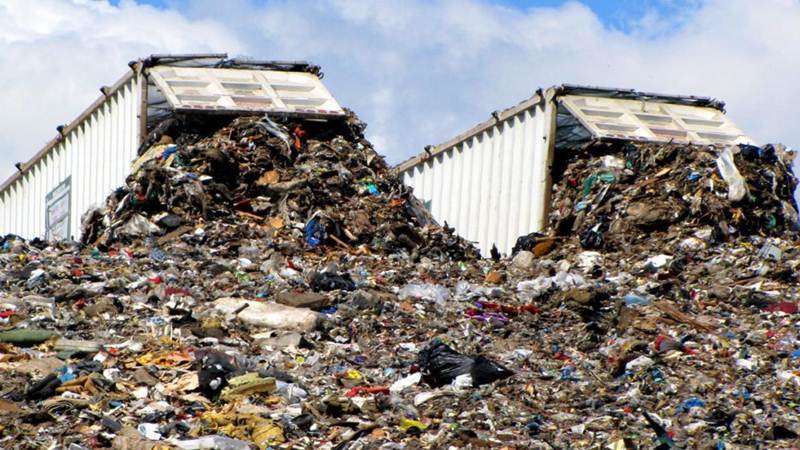
Understanding Roller Screens
Roller screens, also known as drum screens or rotary screens, are cylindrical machines with perforated surfaces. These machines are designed to facilitate the separation of waste materials based on size, shape, and density. As waste is fed into the rotating drum, the perforations allow smaller particles to fall through, while larger items are carried along the drum's length. The rotational motion, combined with the screen's design, enables efficient sorting and reduces the need for manual intervention.
The Role of Roller Screens in Solid Waste Management
Pre-Treatment of Waste:One of the primary applications of roller screens is in the pre-treatment stage of waste management. Before waste can be further processed or disposed of, it must be sorted to remove recyclable materials, organic matter, and hazardous substances. Roller screens are particularly effective in this phase, as they can handle large volumes of waste and efficiently separate materials based on size. This pre-treatment process is essential for improving the efficiency of subsequent waste processing methods, such as composting, recycling, or incineration.
Enhancing Recycling Processes:Recycling is a cornerstone of sustainable waste management. However, the effectiveness of recycling operations depends heavily on the purity and quality of the sorted materials. Roller screens play a crucial role in improving the quality of recyclable materials by removing contaminants and separating items like paper, plastics, metals, and glass. By ensuring that only clean and properly sorted materials enter the recycling stream, roller screens help increase recycling rates and reduce the environmental impact of waste disposal.
Composting and Organic Waste Processing:Organic waste, including food scraps, yard waste, and other biodegradable materials, constitutes a significant portion of municipal solid waste. Composting is a widely adopted method for managing organic waste, converting it into nutrient-rich compost that can be used in agriculture and landscaping. Roller screens are instrumental in the composting process, as they can efficiently separate organic materials from non-biodegradable waste. By screening out unwanted items, roller screens help produce high-quality compost that meets industry standards.
Waste-to-Energy (WtE) Facilities:Waste-to-Energy (WtE) facilities convert non-recyclable waste into energy through combustion or other processes. The efficiency of WtE operations depends on the composition and size of the waste being processed. Roller screens are used to prepare waste for energy recovery by removing oversized or unsuitable materials that could hinder the combustion process. By ensuring that only appropriate waste enters the WtE facility, roller screens contribute to more efficient energy generation and reduced emissions.
Landfill Management:Even with advanced waste management technologies, landfills remain a common method of waste disposal. However, the environmental impact of landfills can be mitigated through proper waste sorting and preparation. Roller screens are used in landfill operations to separate and compact waste, reducing the volume of material that needs to be buried. Additionally, by removing recyclable and organic materials from the waste stream, roller screens help extend the lifespan of landfills and minimize their environmental footprint.
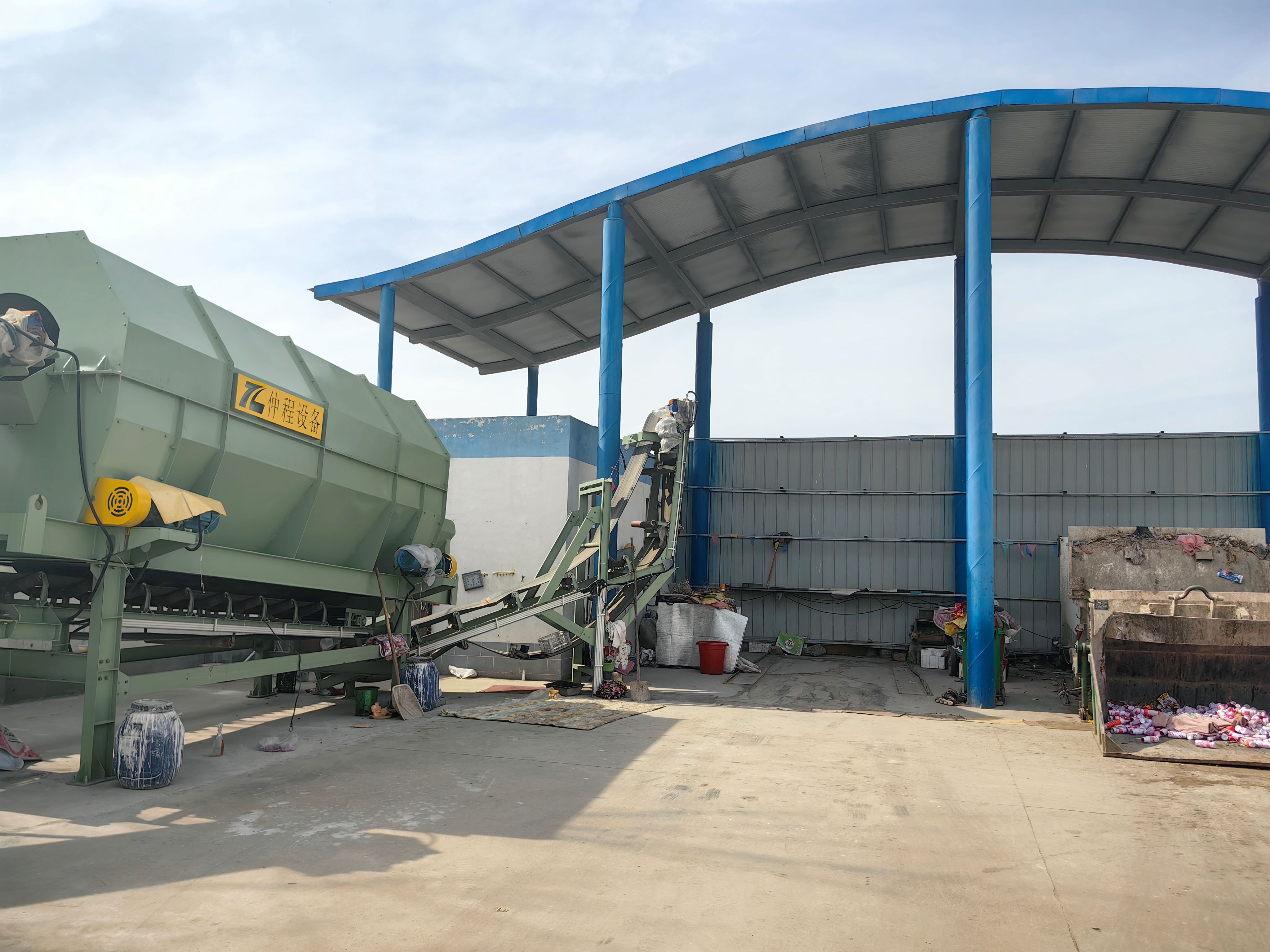
Advantages of Roller Screens
Efficiency and Throughput:Roller screens are designed to handle large volumes of waste with high efficiency. Their ability to continuously process material ensures that waste management operations can run smoothly without significant delays. This high throughput is particularly beneficial in large-scale waste management facilities that need to process hundreds or thousands of tons of waste daily.
Versatility:Roller screens are versatile machines that can be used across various stages of the waste management process. Whether in pre-treatment, recycling, composting, or energy recovery, roller screens can adapt to different waste types and processing requirements. This versatility makes them a valuable asset for municipalities and waste management companies seeking to optimize their operations.
Low Maintenance and Operational Costs:Compared to other types of screening equipment, roller screens generally require less maintenance due to their simple design and robust construction. The reduced need for maintenance translates into lower operational costs, making roller screens an economically viable option for waste management facilities.
Environmental Benefits:By improving the efficiency of waste sorting and reducing the volume of waste that ends up in landfills, roller screens contribute to a more sustainable approach to waste management. The ability to recover valuable materials for recycling and energy production further enhances the environmental benefits of using roller screens.
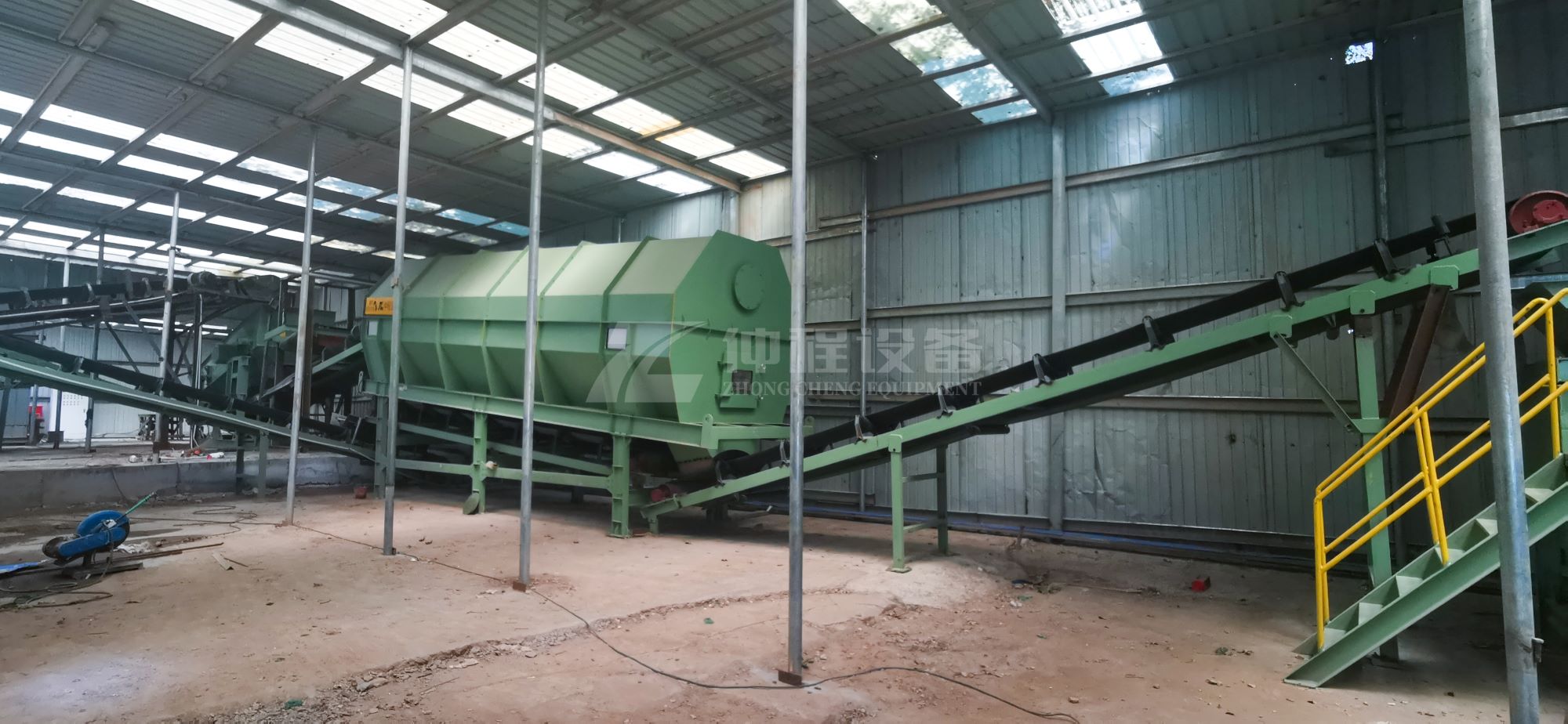
Conclusion
Roller screens have become an integral part of modern solid waste management solutions. Their ability to efficiently sort and separate waste materials makes them a valuable tool for enhancing recycling processes, improving composting operations, and supporting Waste-to-Energy facilities. As the demand for sustainable waste management practices continues to grow, the application of roller screens is likely to expand, contributing to a cleaner and more sustainable future for communities around the world. By investing in advanced technologies like roller screens, waste management companies can play a crucial role in protecting the environment and promoting sustainable development.
-
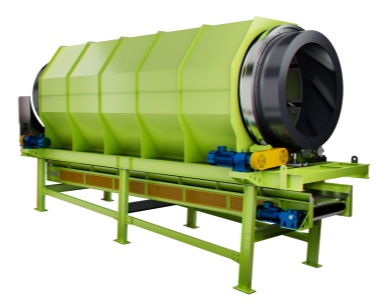 Trommel screenTrommel screen, also known as drum screens, are widely used in various industries for sorting and separating materials.Get Quote
Trommel screenTrommel screen, also known as drum screens, are widely used in various industries for sorting and separating materials.Get Quote -
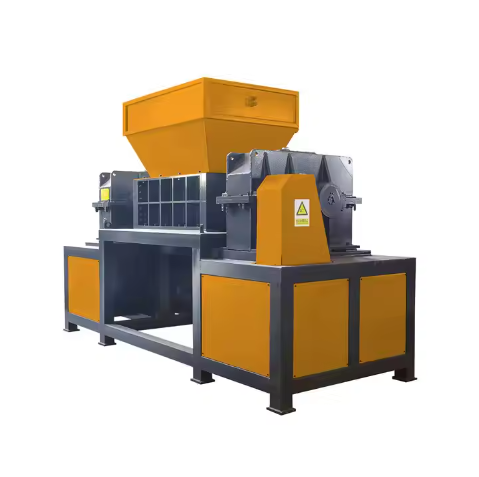 Crop straw double shaft shreddApplications:Biomass Energy Production: Shredded straw can be used as a feedstock for bioenergy plants to produce electricity or heat.Livestock Feed: Reduced-si...Get Quote
Crop straw double shaft shreddApplications:Biomass Energy Production: Shredded straw can be used as a feedstock for bioenergy plants to produce electricity or heat.Livestock Feed: Reduced-si...Get Quote -
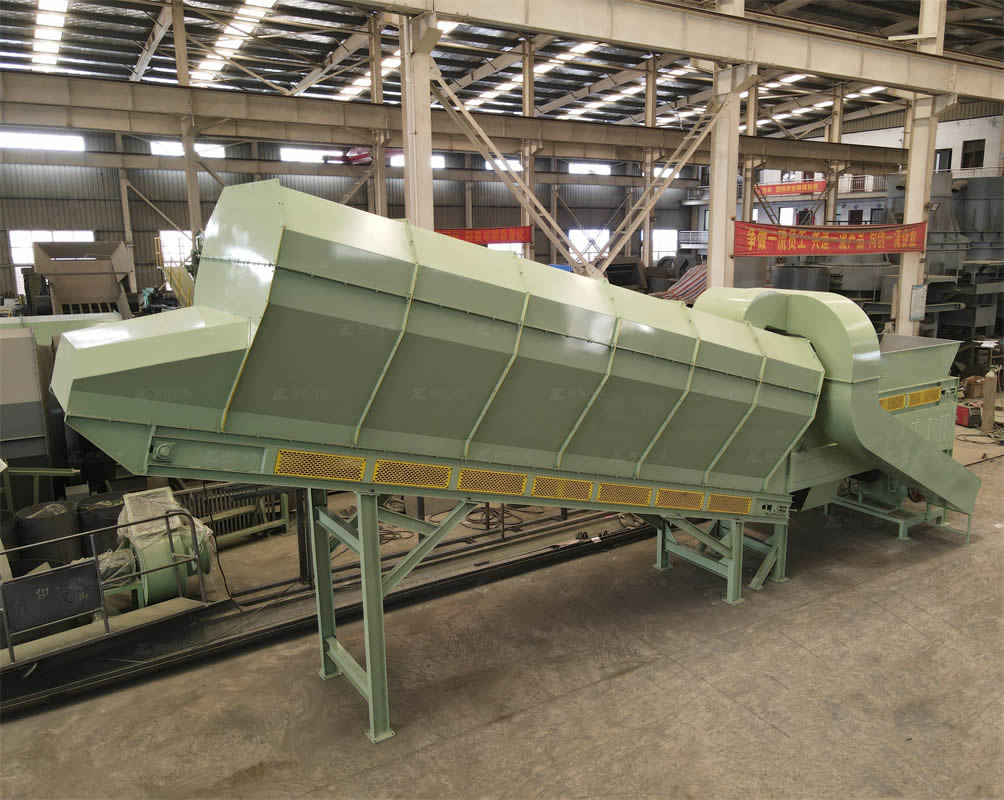 Zhongcheng Air Drum SeparatorAir drum separators effectively separate lightweight materials (e.g., plastics, paper) from heavier materials (e.g., metals, glass). This high efficiency is cru...Get Quote
Zhongcheng Air Drum SeparatorAir drum separators effectively separate lightweight materials (e.g., plastics, paper) from heavier materials (e.g., metals, glass). This high efficiency is cru...Get Quote
-
2024-08-06Plastic double shaft shredderOperation:Feeding: The plastic material is fed into the shredder through the infeed system.Shredding: As the material enters the shredding chamber, the rotating...
-
2024-05-18C Series Jaw CrusherC series jaw crusher is a jaw crusher with excellent performance introduced and developed by zchmachinery according to the market demand. Compared with traditio...
-
2023-01-12Vibrating ScreenVibrating screen is a mechanical device used to separate materials into different sizes and grades by vibrating them through a mesh or screen. This equipment is...
-
2024-06-20Wind Separator Technology for Lightweight Materials in Urban Solid Wastewind separator, also known as air separation, is a sophisticated and efficient method of sorting that utilizes air as the separating medium.
-
2024-08-12The Advantages of Horizontal Baling TechnologyA horizontal baler, also known as a horizontal baling machine, is a piece of equipment used for compressing materials and wrapping them into bales. This process...



